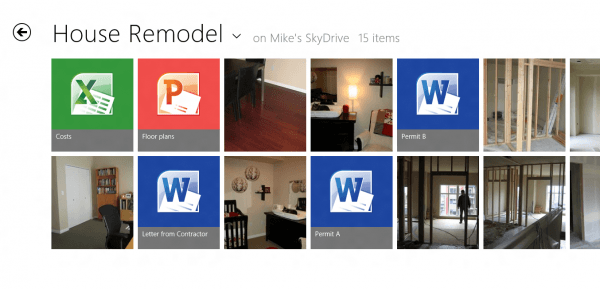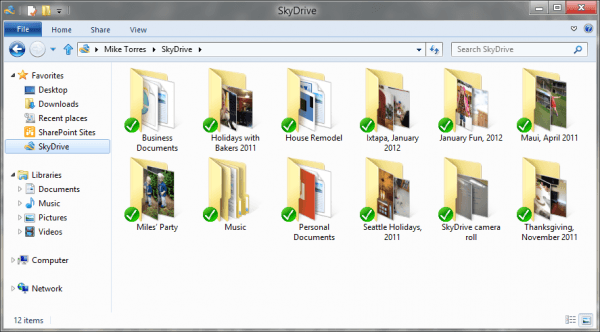Microsoft has confirmed that their cloud storage product, SkyDrive, will be getting a Metro-style app for the upcoming Windows 8 release, in addition to multiple changes as it looks to compete more strongly against Apple's iCloud service.
An early version of it will be made available with the Windows 8 Consumer Preview which is due for public release later this month. "We focused on two things: 1) designing a fast, fluid, touch-first version of SkyDrive that makes it quick, easy, and even fun to browse and access your files, and 2) making your SkyDrive available for use from any Metro style app via the file picker (open/save) and the new Share charm in Windows 8," Mike Torres and Omar Shahine, group programs managers for SkyDrive wrote in their blog post.
The changes make SkyDrive work more like Dropbox as it appears more tightly integrated with the OS than previous versions. It will also be made available for Windows Vista and 7 users.
The new desktop app has been built from scratch using JavaScript, CSS and HTML5. It will allow drag-and-drop upload and download, anywhere access to your data including offline access, and Windows Explorer seamless integration. The end result is files are instantly available and up-to-date across all devices without the need for configuring add-ons or using portable media storage.
"Because of our recent updates to SkyDrive.com, we were able to use the same JSON APIs and JavaScript object model that the website uses. The only difference on Windows 8 is that we bind the results to modern controls that were built for touch. This is part of the reason it's so fast, and the touch behavior works so well (and works on Windows on ARM too)."
Metro App developers will also find that as long as their app supports opening and closing of documents and photos, it can also support SkyDrive without any further coding work required.

SkyDrive will also be integrated more closely with Windows 8 Mail, enabling people to share photos via email without having to send them as attachments, reducing the possibility of multiple copies on your system as well as bypassing restrictions on the number of attachments or total size issues users typically encounter when sending emails.
Microsoft says it's been hard at work with optimizations and network tweaks to reduce the CPU footprint and network allocation during use. "As an example, here's an image from Performance Monitor showing performance while a 500MB file is progressively uploading from the desktop to the cloud. You can see how little of the CPU is being used for SkyDrive during idle as well as for the file transfer halfway through (the blue is total CPU, the black is SkyDrive)," the pair wrote.

An increase in the maximum single file size will make it possible for users to upload single files as large as 2GB in size to your online storage space. The new "fetch" feature will also turn your PC into its own private cloud, enabling those with access to access the multiple terabytes of storage it has from anywhere by accessing your computer via SkyDrive.com.